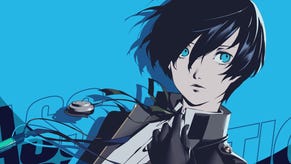Fallout 3
Apocalyptic, apoplectic, or absolutely flipping fantastic?
It's first-person. There, that's what you came here to find out. But I implore you, stick around for a bit longer. I've interesting things to tell you. (Not least, that it can be played in third-person, even pulling the camera back and up).
Like so very many people, Bethesda - the team behind the Elder Scrolls series, most recently Oblivion - fell in love with Fallout in 1997. A turn-based RPG, it is often heralded as Interplay's finest moment, crafting an elaborate post-nuclear world, and a story of intricate depth. It was so fantastically iconic. And not in that awful way people so lazily use that word now, but truly creating gaming icons. Vault-Boy, with his thumb pointing up and his ridiculously cheery grin, a bitter lie in a devastated world. The PIPBoy 2000 and its all-in-one justification for maps, objectives and character info. The SPECIAL System (Strength, Perception, Endurance, Charisma, Intelligence, Agility, and Luck).
But most of all, there was a sense of professionalism missing from so many games. The opening sequences for both Fallout 1 and 2, the beautiful '40s music, the astonishingly crafted retro-future, the shocking and revelatory endings, and the sense of extraordinary freedom. That's an awful lot to live up to.
Bethesda has a lot to do. From what we've seen so far - and believe us, we're sighing with relief - they look to be on the right path. And sure, the die-hards are still recovering from the first line of the preview. But the rest of us are going to realise that it's not really a very sensible idea to make a turn-based isometric game in 2007. It's the spirit that counts, and that's what they seem to be getting right. And this could be to do with the approach they're taking to developing the third game in a series with no one involved with previous two.
Looking forward
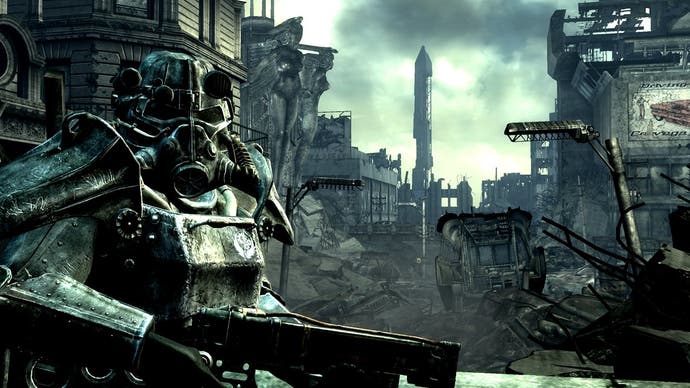
Bethesda has chosen to ignore the existence of Fallout: Tactics and Brotherhood of Steel. "I ignore Tactics and Brotherhood like I ignore Alien 3 and 4," says executive producer Todd Howard. And so will we, so it's safe to say that it's been ten years since the last Fallout proper.
"We went back and played both games. And we also read reviews from the time. I find that really takes the age out of things," says Howard. Reviews, he explains, don't carry the weight of time. They talk about the essence of the game, and being of a single moment, are unaware of the technological shortfalls to come. Since 2004 when they acquired the licence they were so desperately keen to develop (Todd came back to his desk to find a note on his keyboard reading, "Fallout is yours". There was dancing), they've been working on the game, developed using a reworking of the Oblivion engine. They saw no other choice.
In 2077, The Great War occurred between the United States and China. It became nuclear war, and any humans that survived were driven underground into vaults. Fallout 1 and 2 followed the adventures of an inhabitant of Vault 13, and his descendant. Fallout 3 shifts the action to the other side of the country. The decision was made to focus on the styles of Fallout 1, rather than 2. Believing it took the winking-at-the-camera aspects too far, with Python references and prostituting your in-game wife as perhaps breaking the illusion a little.
So here are the facts: It's not set on the West coast, but in Washington DC, where Bethesda is based. ("Write what you know," states lead designer Emil Pagliarulo, "and we know DC.") It's not a direct continuation of the plot of the first two, but set in the same world, 30 years after the events of Fallout 2. The PIPBoy is back, refined, and picks up radio stations. The combat is, as we'll explain in a bit, somewhat turn-based. It's incredibly violent. And Liam Neeson is your dad.
Baby steps
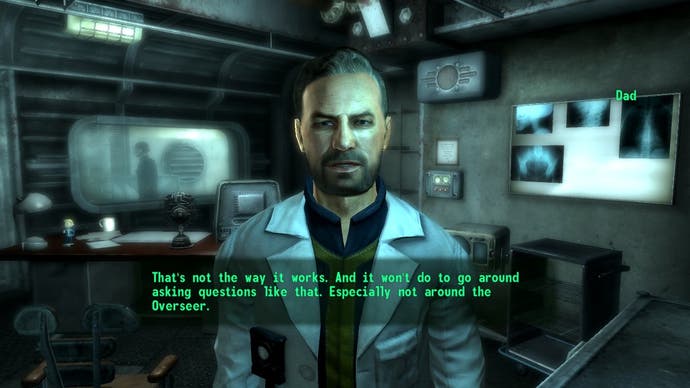
Begin at the beginning. That's the ethos here. Rather than a tutorial, or even a character creation screen, Fallout 3 begins with you as a one-year-old, taking your first steps, defining your SPECIAL abilities from the very start. (This is via a book called You Are Special). Then you skip a few years later, age 10, and receive your PIPBoy. There's stuff to do, quests to get involved with inside the vault. You experience your childhood. And throughout, as well as picking the various stats that define you at appropriate ages, you build on your relationship with your father - an element key to the narrative. By the time you're 19 (an hour or two in, we're told), he suddenly goes missing.
This is a big deal because in Vault 101, no one has ever left. It's been a self-sustaining community since the original nuclear fallout. Your father's unexplained disappearance is your motivation to leave, and the central theme of the story. So now an adult, outside you go.
For a game that's over a year away, we saw an awful lot of very complete looking content. Including recorded speech, featuring one Liam Neeson as your father. Obviously with the boost of having an engine in place, the last three years have been put to good use. But this isn't the Oblivion With Guns that so many were fearing. One of our biggest worries was the dialogue. Oblivion, as much as we love it, isn't exactly the greatest example of NPC banter. Bonkers looping conversations with women talking in men's voices about a Grey Fox are just about dismissible in the Elder Scrolls world. In Fallout, the character interaction is too precious. And as such, the entire Oblivion character system was stripped out and redone. There were an incredible 1500 NPCs in Oblivion, but Fallout 3 has only a few hundred, each unique with a defined personality. One example given to us was the sheriff of the first city you encounter, Megaton. Should you choose to follow him to his house (you know, sneaky-like), when he gets home and sees his son you'll hear him have a father/son style chat with him. This isn't a cut-scene or a set-piece - it's two NPCs recognising each other and talking accordingly. (Oh and if you kill him and steal his clothes, some people might mistake you for him).

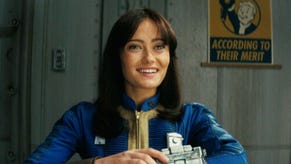
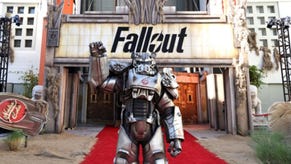
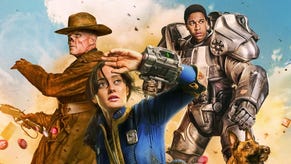
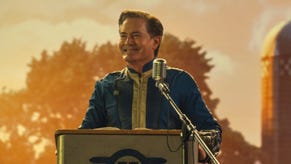

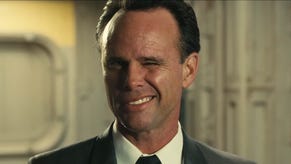
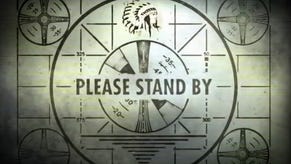
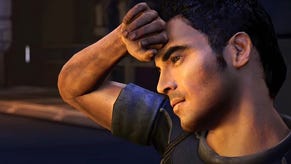

.png?width=291&height=164&fit=crop&quality=80&format=jpg&auto=webp)




.jpg?width=291&height=164&fit=crop&quality=80&format=jpg&auto=webp)
